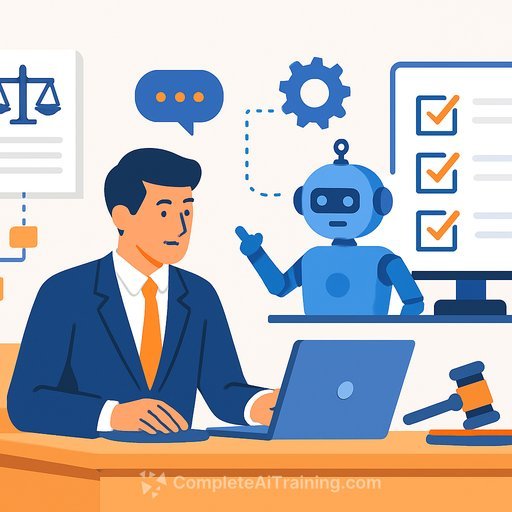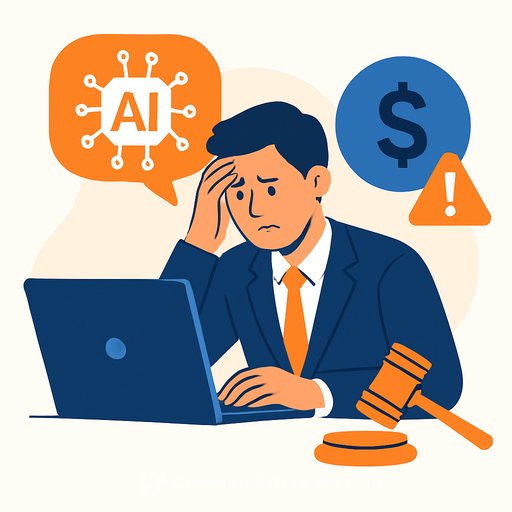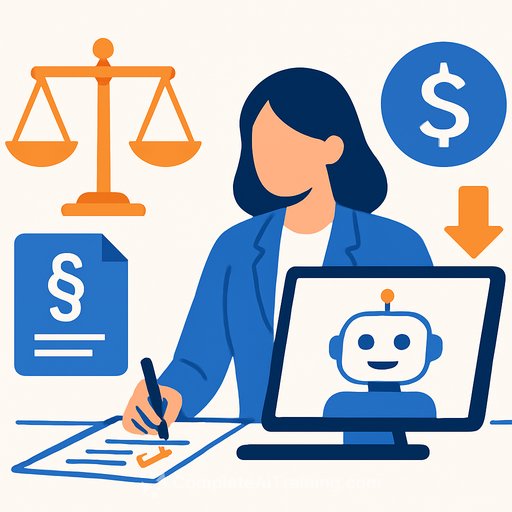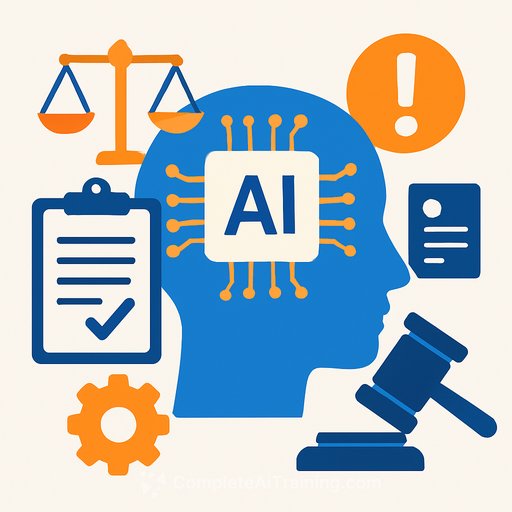Meet the man leading AI's charge in the legal industry
Fifteen years ago, Joseph Rayment thought he had it made. Big firm. High-stakes litigation. A legacy to carry on as the son of a judge and brother of a barrister.
Then came the basement. Boxes. A million documents. Halfway through the review, the key issues shifted and the team had to start again. "It was really inefficient, and terribly mind-numbing," he says.
That experience pushed him out of practice and into software. Today, Rayment is founder and CEO of Automatise, creator of Cicero AI - a specialist litigation tool focused on large-scale document review and due diligence. The company just won the Professional Services category in the AFR BOSS 2025 Most Innovative Companies awards.
The pain that sparked a product
Discovery still eats hours, budgets, and junior morale. Rayment lived it. He built Cicero to kill that tedium and give litigators what they actually need: faster fact-finding, earlier case clarity, and fewer wasted passes through the same pile of emails, reports, and memos.
"If you want to distil the value proposition, it's that a specialist is going to produce better outcomes than a generalist," he says. "You wouldn't send the family solicitor to argue in the Court of Appeal - you'd hire a barrister. We take the same approach, in that specialist practitioners also need specialist tools."
What Cicero AI actually does
Lawyers upload matter documents and set the questions that matter. Cicero extracts events, facts, and testimony, then surfaces what moves the needle: timelines, contradictions, and signals hiding in noise. The outcome isn't a magic brief - it's momentum. Teams build cases faster and catch issues earlier.
- Scope: Large-scale litigation discovery and due diligence
- Mode: Document ingestion + question-led analysis
- Output: Key facts, events, testimony, and cross-references
- Value: Fewer review cycles, earlier case strategy, reduced cost-to-serve
"We are exclusively focused on litigation with respect to aiding in very large-scale document review," Rayment says. "To put it in a nutshell, we help lawyers find the facts faster so they can build a stronger case earlier."
Where it fits in a crowded market
Legal AI is busy. US-based giants like Harvey (recently valued at $US5 billion) and Legora have raised significant capital. Microsoft and Thomson Reuters are investing heavily. Local specialist players such as Smokeball and Deelegence are carving out their corners. Nexl was valued at $100 million after a recent $35 million raise.
Cicero isn't trying to be everything for everyone. It slots in next to generalist tools and focuses on high-signal features for litigation teams. In practice, many firms run Cicero alongside broader AI assistants - the specialist plus the utility tool.
Adoption, traction, and the business model
Since launching in 2022, Cicero has signed 15 of Australia's largest firms and begun expanding into the UK. Early backing came from ETHAN (Rayment's former employer) and an introduction to its first client, Wotton + Kearney.
Clients include MinterEllison, Holding Redlich, Colin Biggers & Paisley, Maddocks, and Meridian Lawyers. Revenue cleared $1 million within six months. The team sits at 24, mostly developers. "About 80 per cent of our budget goes to research and development at the moment," Rayment says.
Risk, guardrails, and what courts expect
AI has already forced change across professional services. It has also created very public failures - including a $440,000 Deloitte report that contained fake citations and a fabricated quote from a Federal Court judgment.
Courts in Australia are moving quickly. Internal efficiency tools are largely unregulated, but AI-generated material in litigation is under scrutiny. Several regulators (NSW, Victoria, WA) recommend lawyers limit AI to low-risk tasks and verify accuracy and security. The NSW Supreme Court has banned AI-generated material in submissions unless the court gives explicit permission.
Rayment welcomes the guardrails. "The courts have a very strong obligation and prerogative to enforce proper guardrails around the material that is submitted to them."
Security and deployment
Client data sensitivity is the sticking point. Rayment says Cicero operates inside a firm's existing cyber architecture, doesn't share data with third parties, and doesn't train on client inputs. The approach: deploy where the data already lives, and integrate into real workflows, not demos.
"Unlike traditional sales relationships, when you sell a product and then do a project and move on, we're living as fully deployed engineers inside the law firms working out which processes to include for each of the groups that are using our product," he says.
How your firm can evaluate legal AI now
- Start with one use case: large-scale discovery on a live matter with clear success metrics (hours saved, review accuracy, time to chronology).
- Pick specialist over generalist for high-stakes tasks; keep generalist tools for admin and low-risk drafting.
- Run security through your existing stack: identity, encryption, audit logs, data residency, and vendor access.
- Mandate human verification for anything heading to court. Require citations and source retrieval on outputs.
- Pilot with a small squad (partner, senior associate, tech/knowledge lead). Weekly feedback loop. Ship changes.
- Measure and compare: baseline manual review vs. AI-assisted review. Track error rates and rework.
- Train your team. Set a firm policy for acceptable use, disclosure, and client communications about AI.
If you're building firm-wide competence in AI, curated course lists by job function can help move quickly without noise. See a practical collection here: AI courses by job.
What's next
Expect consolidation. Some start-ups won't make it. The firms that win will pair specialist tools with clear policies, consistent training, and hard metrics.
Automatise is betting that a narrow focus and tight client relationships will beat broad, generic platforms in high-stakes litigation. So far, the market is listening.
Your membership also unlocks:






